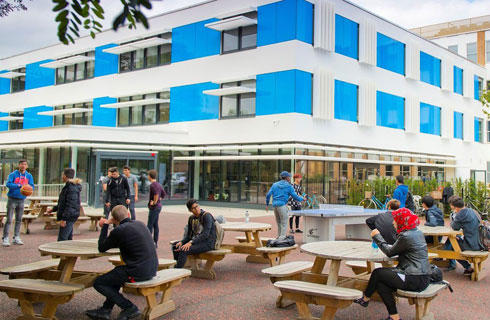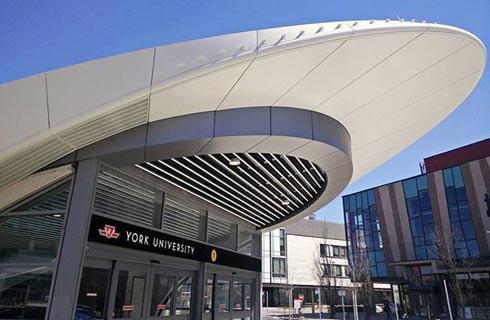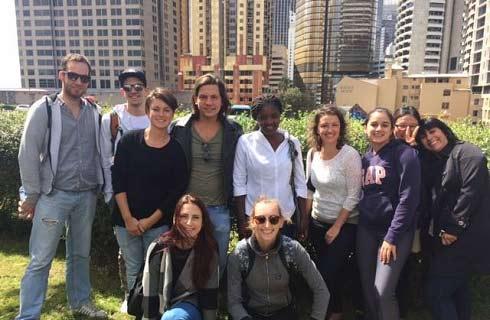国际学生入学条件
New Zealand University Entrance: NCEA Level 3 (60 credits at level 3 and 20 credits at level 2 or higher) which must include:
14 credits at Level 3 in each of:
mathematics or physics or statistics or accounting
English or history or art history or classics or geography or economics
One other subject from the list of approved subjects*
Literacy* - 10 credits at Level 2 or above, made up of 5 credits in reading, 5 credits in writing, and
Numeracy* - 10 credits at Level 1 or above (specified achievement standards, or unit standards 26623, 26626, 26627)
OR one of the following:
New Zealand Diploma in Information Technology Technical Support Level 5
New Zealand Diploma in Web Development and Design Level 5
New Zealand Diploma in Networking Level 6
New Zealand Diploma in Systems Administration Level 6
OR New Zealand Certificate in Study and Career Preparation (Level 4) Ara Business and ICT Pathway or equivalent
Due to Covid-19 disruption, if you studied and achieved NCEA Level 3 during 2020, you only need 12 credits per Level 3 subject (i.e. total of 36 credits). Literacy and Numeracy requirements remain the same
If you have undertaken examinations other than NCEA (e.g. International Baccalaureate, Cambridge Examination), Ara will assess your qualification for academic entry equivalency.
Overall IELTS 6.0 Academic - 5.5 Listening, 5.5 Reading, 5.5 Writing, 5.5 Speaking, TOEFL Internet-based test (iBT) - Score of 60 (with a writing score of 18)
展开
IDP—雅思考试联合主办方

雅思考试总分
6.0
- 雅思总分:6
- 托福网考总分:60
- 托福笔试总分:160
- 其他语言考试:Pearson Test of English (Academic) - PTE (Academic) score of 50 with no band score lower than 42.
CRICOS代码:
申请截止日期: 请与IDP联系 以获取详细信息。
课程简介
Advance your existing skills in computing and broaden your employment opportunities in this fast-evolving field.<br>Our IT industry partners have significant input into the structure and content of this programme to ensure that what is being taught continually meets industry needs.<br><br>The first year covers a broad range of ICT topics that will provide you with a solid base of knowledge in software engineering (programming), hardware and networking, website development, IT tools and concepts and mathematics skills relevant to IT.<br><br>In years two and three you'll choose one of three specialist pathways: Information Systems, Networking and Infrastructure or Software Development. During this time you'll develop in-depth knowledge of your chosen area through a range of compulsory and elective courses.<br><br>You'll also develop skills in problem solving, critical thinking, analysis, team work, project management, time management, self-reliance and communication skills. There is a strong emphasis on practical skills and work-readiness, so wherever possible, theory is integrated and applied to practical tasks.<br><br>Many courses include group activities or group projects, as the ability to work as part of a team is strongly valued by employers.<br><br>In the final semester you'll put all of your acquired skills and knowledge into practice in a 45-credit capstone project (in most cases for a local business). The project is an excellent opportunity to equip yourself with real-world IT experience and to learn from industry people. It also results in a substantial piece of work with which to demonstrate your potential to prospective employers. Part-time up to 5 years.<br><br>This leads to the Bachelor of Information and Communication Technologies
展开







 预科
预科 奖学金
奖学金 实习机会
实习机会 在校学习
在校学习 跨境学习
跨境学习 校园授课-线上开始
校园授课-线上开始 在线/远程学习
在线/远程学习














 奥塔哥理工学院
奥塔哥理工学院

 爱丁堡龙比亚大学
爱丁堡龙比亚大学

 学习集团(澳大利亚)
学习集团(澳大利亚)

 科廷大学
科廷大学

 南澳大学
南澳大学










